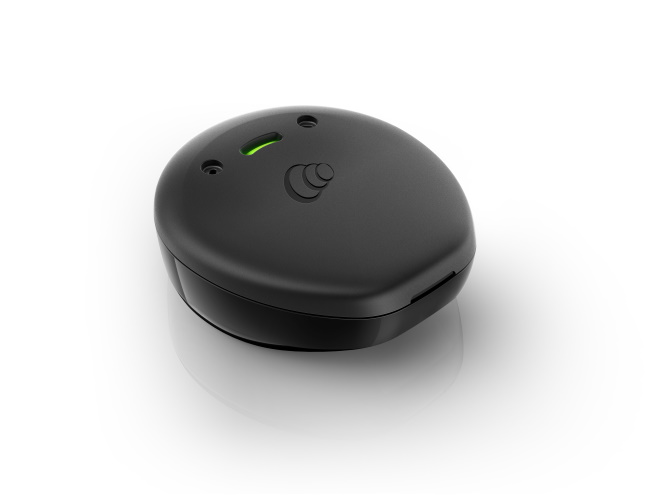
Health x Wellness
What is the impact of hearing loss on a person’s quality of life?
Singapore has an estimated 360,000 people with hearing loss. That is about 1 in 11 Singaporeans with the condition. Noise-induced hearing loss is permanent, making both conversational speech and high-pitched sounds difficult to hear.
The number of people suffering from this condition continues to grow as factors such as a higher average outdoor sound level is prevalent. The average outdoor sound level is recorded at 69.4 decibels compared to NEA’s recommended limit of 67 decibels.
One solution for the condition is by using Cochlear implants. These are effective for patients of all ages. They work through using electrodes to stimulate the cochlea auditory nerve, carrying these signals to the brain, where they are translated into sounds.
We speak with Dr Vanessa Tan, Consultant, Director SGH Centre for Hearing and Ear Implants, from the Department of Otorhinolaryngology, Head and Neck Surgery about hearing loss, quality of life and cochlear implants.
the Active Age (AA): Can you define hearing loss for us?
Dr Vanessa Tan (VT): Normal hearing is between 0 and 25 dB HL (hearing level). Hearing loss may be classified as:
Mild hearing loss 25-40dB HL
Moderate hearing loss 40-55dB HL
Moderate severe hearing loss 55-70dB HL
Severe hearing loss 70-90dB HL
Profound hearing loss Above 90dB HL
To give u an idea of the various hearing levels, a quiet conversation is at 40dB, normal conversation is at 60dB, traffic is at 80dB and industrial noise is at 100dB.
AA: What are the main causes of hearing loss?
VT: There are two types of hearing loss, conductive and sensorineural hearing loss.
Conductive hearing loss is due to disruption in the passage of sound from the external ear to the inner ear. Such loss may be due to ear wax, ear infections, ear drum perforation or problems with the hearing bones, such as otosclerosis.
Sensorineural hearing loss is due to a problem with the hearing nerve. The most common cause of sensorineural hearing loss is due to ageing, also known as presbycusis.
AA: What is the impact of hearing loss on the quality of life of a person?
VT: Hearing loss is associated with depression. 1 in 5 adults with hearing loss have depression and a further 22 percent experience depression over time. Communication difficulties can cause conflict in relationships, social isolation, and loneliness, which contribute to depression.
Hearing loss has also been found to be one of the top risk factors for dementia, accounting for 9 percent of cases. Possible reasons for hearing loss causing dementia include increased stress to the brain when it is forced to hear, thereby compromising the thinking and memory systems. Other reasons include reduced hearing input causing the brain to shrink and reduced social interactions causing people to be less intellectually stimulated. Hearing loss may be a modifiable risk factor for dementia.
Hearing loss also puts people at an obvious disadvantage. People with hearing loss are 21-39 percent less likely to attend university, experience twice as much work stress and have lower work participation rates than normal-hearing individuals. Decreased quality of life has also been found in children with regards to school activities and social interactions, which are especially important for development and learning.

AA: Are there any solutions for hearing loss?
VT: The treatment options for hearing loss are variable, depending on the cause, and include medication, surgery and hearing aids or implants. As there are too many causes of hearing loss, I will focus on the most common cause – presbycusis.
Presbycusis is a slowly progressive sensorineural hearing loss, presenting in people older than 60 years. More than one third of people older than age 75 will be affected by presbycusis. Patients with presbycusis who experience communication difficulties should wear hearing aids. Hearing aids help to amplify sound and pass the amplified sound through the external to middle to inner ear. There are many different models of hearing aids, and an audiologist can advise on the hearing aid that best suits a patient.
AA: What are cochlear implants and how do they help manage hearing loss for an affected person?

VT: A cochlear implant is a device that is surgically implanted to help patients with hearing loss hear better. The cochlear implant bypasses the usual route of sound from the external to middle to inner ear. It directly stimulates the hearing nerve in the inner ear (cochlea).
AA: Why are cochlear implants a preferred solution to the others mentioned earlier?
VT: As the cochlear implant directly stimulates the hearing nerve, it is able to send a stronger sound signal to the inner ear. A cochlear implant is recommended when patients have insufficient benefit from hearing aids.
Traditionally, cochlear implants were for patients with bilateral severe to profound hearing loss. However, with improved implant technology and surgical advances, the indications for cochlear implants have widened.
Cochlear implants can also be done for patients with ski-slope pattern of hearing loss. These patients have severe to profound hearing loss only over certain frequencies, typically the mid to high frequencies. Cochlear implants can also help restore binaural hearing, that is hearing in both ears, for patients with single-sided deafness. Hearing with both ears allows one to localise sound and hear better in noisy situations.
This interview was facilitated by Cochlear Singapore, with photos provided by them as well.






